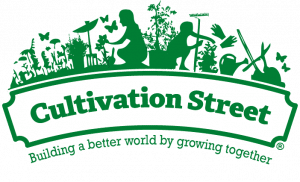How to help birds over winter
Whilst many animals hibernate during the cold winter months, please spare a thought for our flying feathered friends. They are out and about 12 months of the year!
Winter can be a hard time for birds both food and drink-wise. They need high-fat food to keep energy reserves high for the harsh conditions, and equally important, water to keep them hydrated.
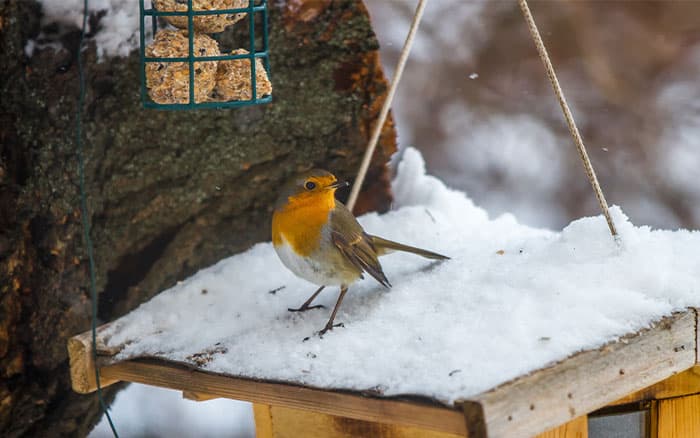
Food
Seeded fat balls
As many birds need to eat the equivalent of 30% of their body weight a day during the winter months just to survive the night a great way to help them survive is to make seeded fat balls; the bird equivalent of our high energy bars!
It’s a lovely group activity for this time of year using fir cones as the base and here’s what you’ll need:-
- Fir cones
- String
- Birdseed
- Lard or suet
- An old bowl
- An old saucepan and a source of heat to melt the lard or suet
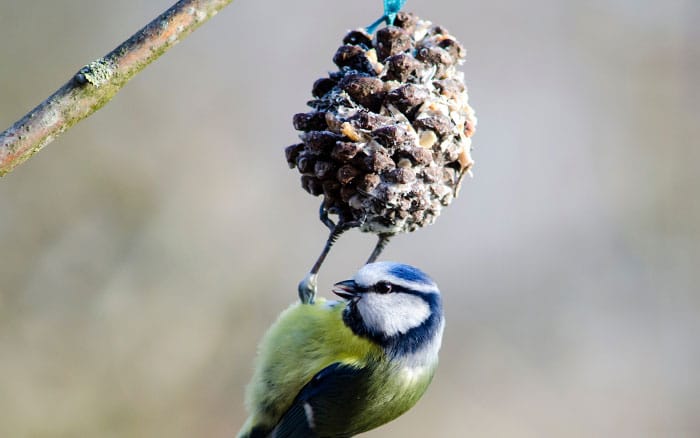
Clean the fir cones and tie a long piece of string around the base of each cone
Melt the lard/suet in the saucepan and pour into the bowl, gradually adding the birdseed until it all sticks together
Push the fatball mix amongst and between the fir cone scales to create a large, tasty bird fat ball
Either put in the fridge or store in a cold but dry area to harden after which the lengths of string holding the fat balls can be tied to trees and shrubs in a quiet area
Varying the mix will attract different types of bird to your feeders:
- Blackbirds love fruit
- Finches love berries and seeds
- Starling love peanuts but make sure they’re unsalted as salt can cause birds to become dehydrated
- Wrens and robins love grated cheese
After you’ve hung the fat balls amongst the trees and shrubs why not start a nature journal into which members of the group can record bird sightings feeding from the fat balls.
Having the fat balls in place during December should also allow the group to take part in the Big Garden Birdwatch during the last weekend in January.
Sunflowers and other flowering seedheads
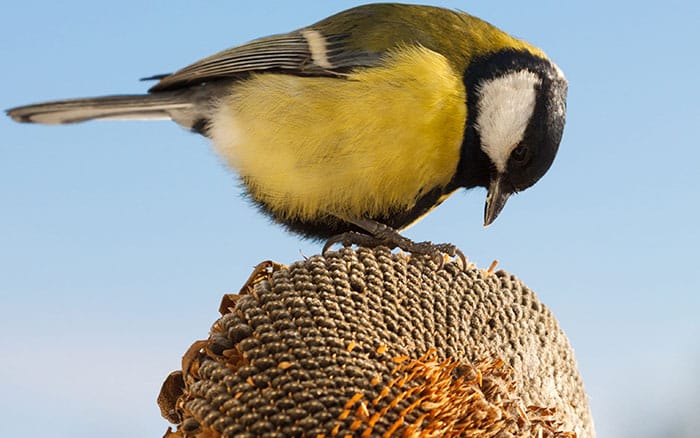
Growing sunflowers in your community garden over summer and then leaving them with the flower heads intact will provide a fantastic food resource for finches and sparrows during the winter months.
This is also a good thing to do for shorter perennial flowers that form good seed heads such as Jerusalem sage, achillea coneflower and teasel.
Water
Birds still need to keep hydrated over winter and, bizarrely, getting enough water to drink can be problematic especially during times of regular frost where regular sources of water become inaccessible to them.
Place a ball into a pond or other water source to stop the water freezing over completely.
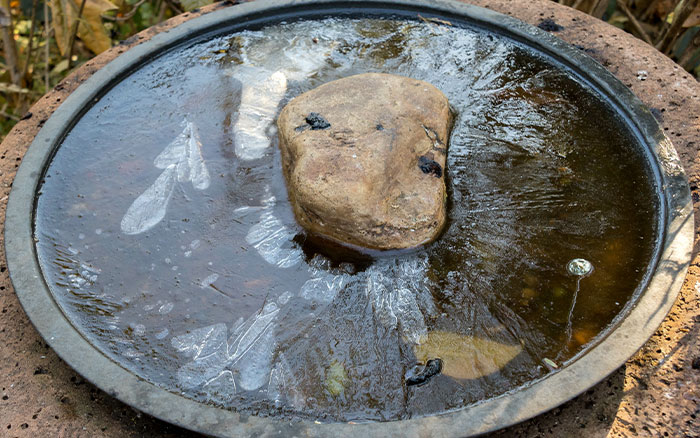
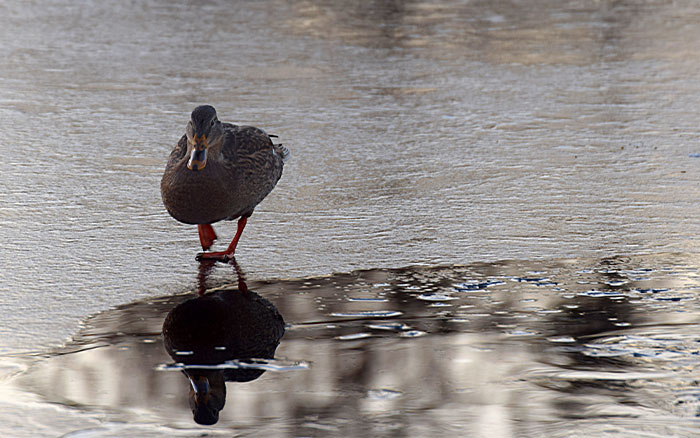
Alternatively melt a hole in the ice with hot water. Don’t be tempted to crack the ice as this can send shockwaves through the water and potentially harm wildlife.
Put out shallow containers of water at ground level for ground nesting birds such as blackbirds.
With a few easy, and affordable steps, birds in your area and garden will thrive this winter. Consider putting a couple of these suggestions into practice, and help out your local wildlife.
